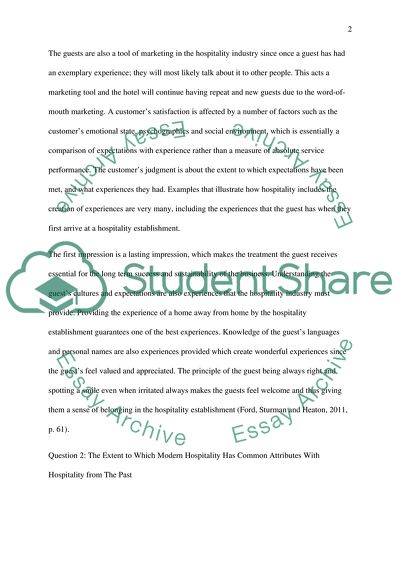Cite this document
(Why Hospitality is about Providing an 'Experience' rather than a Assignment - 2, n.d.)
Why Hospitality is about Providing an 'Experience' rather than a Assignment - 2. Retrieved from https://studentshare.org/social-science/1785663-managing-the-hospitality-experience
Why Hospitality is about Providing an 'Experience' rather than a Assignment - 2. Retrieved from https://studentshare.org/social-science/1785663-managing-the-hospitality-experience
(Why Hospitality Is about Providing an 'Experience' Rather Than a Assignment - 2)
Why Hospitality Is about Providing an 'Experience' Rather Than a Assignment - 2. https://studentshare.org/social-science/1785663-managing-the-hospitality-experience.
Why Hospitality Is about Providing an 'Experience' Rather Than a Assignment - 2. https://studentshare.org/social-science/1785663-managing-the-hospitality-experience.
“Why Hospitality Is about Providing an 'Experience' Rather Than a Assignment - 2”. https://studentshare.org/social-science/1785663-managing-the-hospitality-experience.


